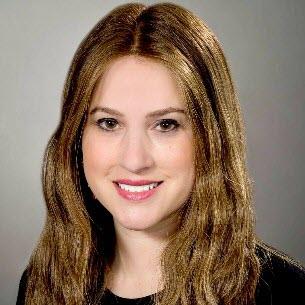On August 7, Dr. Malika Siker of the Medical College of Wisconsin posted the following tweet to the radiation oncology (#radonc) community:
Hi #RADONC! How do you #AnswerTheQuestion ("What do you do? How can you do it?")?
Dr. Siker referenced a NEJM article from 2012 wherein the author shares her experiences answering the question, which she commonly was asked as a pediatric oncologist.
Many radiation oncologists responded to Dr. Siker’s question, and I found their responses very inspiring. The consensus was that treating patients with cancer is extremely fulfilling. See some of the responses below (which have been edited very slightly for clarity):
Dr. Shraddha (Diya) Dalwadi: “Oftentimes I am overwhelmed by the gratitude my patients have for the little things. Is there any more of a privilege in life than to care for others in their most vulnerable state? I help, heal, and cure when possible. I am humbled by the human condition. And most importantly, I reinforce dignity throughout life and death.”
Dr. Matthew Katz: “Helping other people is humbling, rewarding, and a daily challenge to improve what we do for both our patients and ourselves. My patients routinely inspire me and remind me how important it is to cherish every day I have, to live life to the lees.”
Dr. Sabin Motwani: “It's always a privilege when someone, but especially a cancer patient, entrusts you with their health. They are appreciative for the little things you can do for them and for each day of life they have. They are great teachers who continue to inspire us. As radiation oncologists and lifelong learners, that is why we love to work so hard for them.”
Dr. Drew Moghanaki: “We are just people helping people who are suffering and need us. About as close to God’s work as one can get.”
Dr. Raphael Yechieli: “We help people live better each day. By offering treatment for people, and not just doing things to them. And that's why I think we are in the happiest field in medicine!”
Dr. Jeff Michalski: “I emphasize the positive (which is 90% of my clinical #radonc work). I actually cure patients of what were previously incurable diseases. You can't say that about diabetes (endocrinologist), MS (neurologist), arthritis (rheumatologist), CAD (cardiologist), etc...”
Dr. Kaleigh Doke: “We are oncologists that have the privilege of helping cure and care for patients with cancer using the coolest, most advanced treatments in radiation—a treatment that’s been in existence for a century!”
Dr. Lauren Colbert: “We do it because we are eternal optimists, and even for those without a positive outcome it is such a sacred opportunity to provide relief in the midst of pain. Wouldn’t do anything else!”
Dr. Anna Lee: “We offer relief for the disease burden of cancer patients and provide hope so that patients can be the best version of themselves! #cancersucks”
The above Twitter-based discussion is compelling for many reasons. The responses show a clear opposite mindset to what the public believes of oncologists. When someone asks an oncologist: “Wow, isn’t being an oncologist hard?” they are expecting the answer to be, “Yes, it is hard.” Yet, the radiation oncologists above reported the opposite: they find that working with patients with cancer is inspiring and fulfilling.
Discussing our commitment to our field with each other is an excellent way to reinforce our fulfillment in our profession. Social media facilitates these conversations in an unprecedented way. If I’m having a hard day, or come across a patient whose situation does truly make me sad, I can discuss these important emotions with my colleagues and embrace this community of support.
When someone asks you, how do you #AnswerTheQuestion?


Recent posts